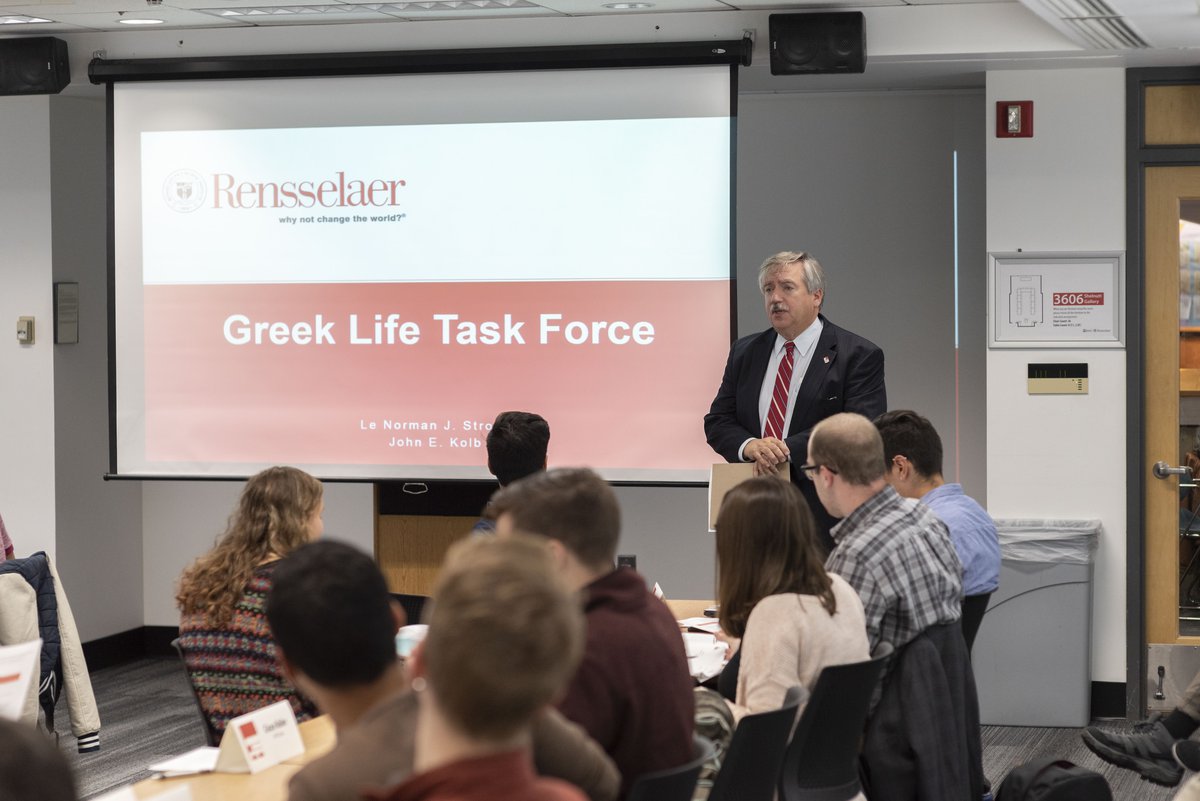The alcohol and drug policy is changing. What does this mean for students?
In an email sent to the Rensselaer community, Vice President for Human Resources Curtis Powell and Vice President for Student Life Peter Konwerski outlined the updates to the Alcohol and Other Drugs Policies, which will go into effect this Summer 2019 semester. The reason for updating the policy—as described in the email—is to “further advance our mission to create an environment where all students, faculty, and staff can thrive among a strong community of learners” and to “continue our proactive approach to safety.” The new policy is 16 pages, compared to the previous policy which was five pages of the Student Handbook of Rights and Responsibilities.
During the Spring Town Meeting, President Shirley Ann Jackson said that “while the new policies, I’m sure, to some may seem stringent, they are meant to enhance the safety of all of our students and to reflect that we are a caring community.”
The following are key changes for students.
Undergraduate dorms and Greek houses will be dry
The updated policy prevents any undergraduate student from having alcohol in their dorm if they live in any Institute-owned, controlled, or affiliated residence facility—even if they are over 21. Since all Greek houses are affiliated with the Institute, this policy also prevents any Greek house from possessing alcohol.
Only graduate students living in exclusively graduate dorms may have alcohol in their rooms. The only dorm that houses graduate students specifically is City Station.
The updated policy still allows the Clubhouse Pub to serve alcohol to students without needing to apply for an alcohol permit for every event. In a recent Executive Board meeting, the Board approved the expansion of the Pub to include Union rooms 3806 and 3802. This will raise its occupancy by 18. More can be read about the expansion online.
If an organization wants to host an event with alcohol they must have the alcohol managed by a third party vendor. They are not permitted to serve any beverages over 15 percent ABV. The event can’t be “open,” which is when “no invitation is given and/or general advertising is used.”
The updated Good Samaritan Policy will place responsibility on observers
The updated Good Samaritan Policy includes a clause that stating that students who fail to call medical services knowing that another student’s “safety or well-being is known, or reasonably should be known, to be in jeopardy” are in violation of the policy.
During the Spring Town Meeting, Dean of Students Travis Apgar clarified that a student is not well when “they can’t stand, they’re vomiting, they’re sick, [or] they’re not able to control their own actions.” He also explained the reasoning for the addition by saying “This will give people the opportunity to call … there is no barrier, whether it’s peer pressure, whether it’s a general understanding or feeling if they don’t know what it is.”
New judicial process shifts responsibility for deciding sanctions from the Judicial Board to Prohibited Substances Review Board
Instead of having the student-run Judicial Board oversee and decide on sanctions for policy violations, the updated policy creates a “Prohibited Substances Review Board.” The new board will be made up of three Institute judicial hearing officers chosen by the Dean of Students. If the board finds that the student didn’t violate the Institute Regulations on Other Drugs Policy but other Institute policies, then the findings will be referred to the J-Board.
“The Student Judicial Board serves our community very well, and we have great respect for them. Because drug-related cases can include a criminal element, they are among the most serious and sensitive matters we address at Rensselaer. Due to the additional risks and considerations involved, we determined that the Prohibited Substances Review Board structure will best serve our students throughout the judicial process related to these particular cases,” wrote Konwerski in an email to The Polytechnic.
There will be a zero tolerance drug policy
This updated policy implements a zero tolerance drug policy on campus. Repercussions are broken up into three sections: drug trafficking, using or possessing prohibited substances besides marijuana, and using or possessing marijuana.
A student that is found to “have engaged in the sale, manufacture, marketing, trafficking, or transfer” of drugs or paraphernalia will automatically be expelled.
If students are found to violate the policies regarding marijuana, the first violation could result in “disciplinary probation, referral for required educational programming and training, substance use assessment, restriction or loss of privileges, or other requirements as severity of the offense dictates, including the loss of housing privileges, substance use assessment, required treatment, and/or drug testing.” A second violation will result in a suspension of at least a year with certain conditions for re-applying for admission. If a student is not granted permission to re-apply or is denied, that student is “deemed to have been expelled.”
With other drugs, violations depend on whether or not the student is a “habitual user.” If there is no finding of habitual use, the repercussion is a minimum of a year suspension with similar potential for re-applying to the Institute. If the student is found to be a habitual user or violates the policy a second time, the student will be expelled without the possibility of return.
To determine if a student is a habitual user the administration will use any information given to them by external police, Public Safety, Student Life or any other information source. If a student is determined to be a habitual user, their parents or guardians will be notified.

 Town Meeting
Town Meeting
 Greek Life
Greek Life